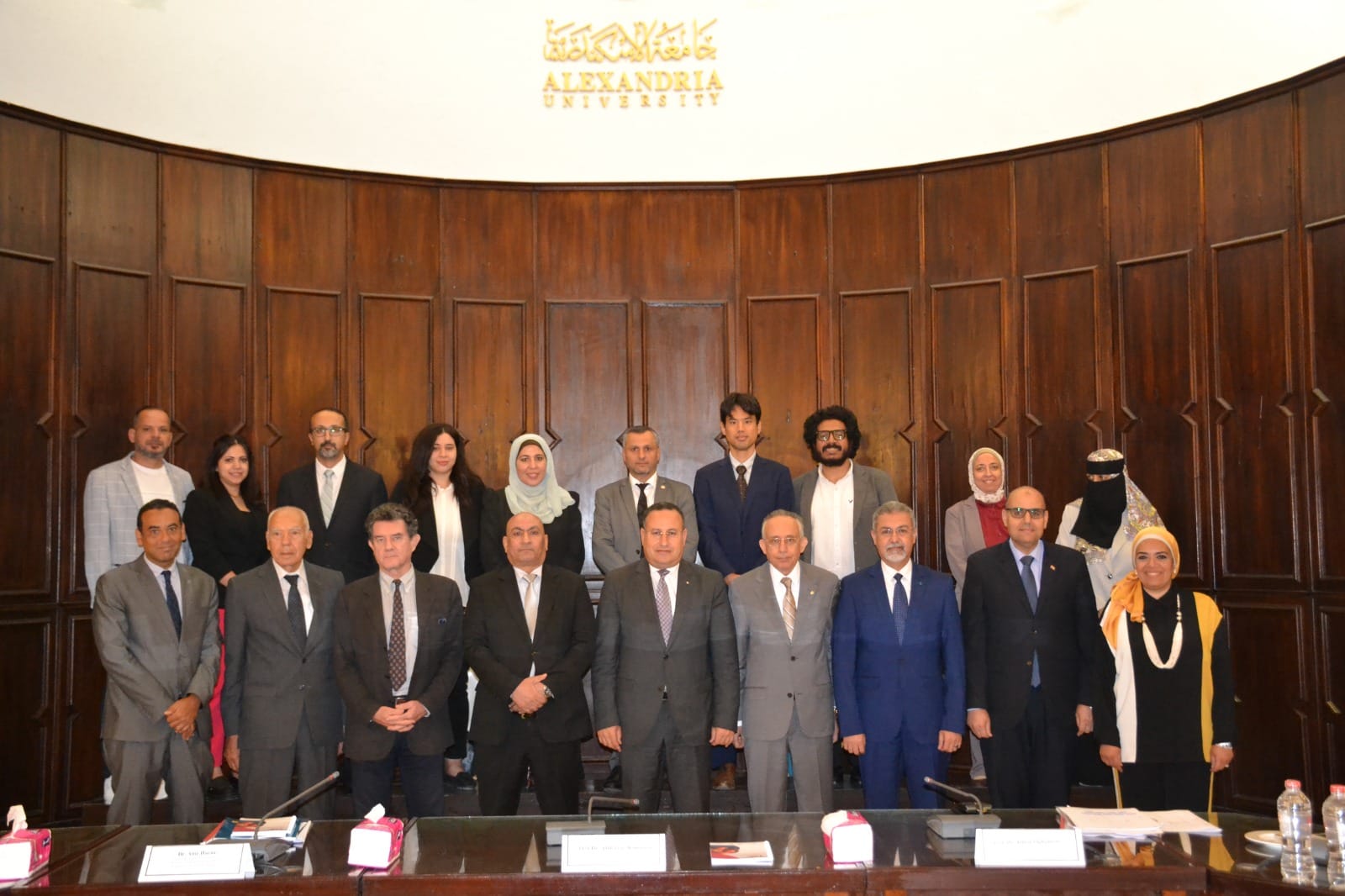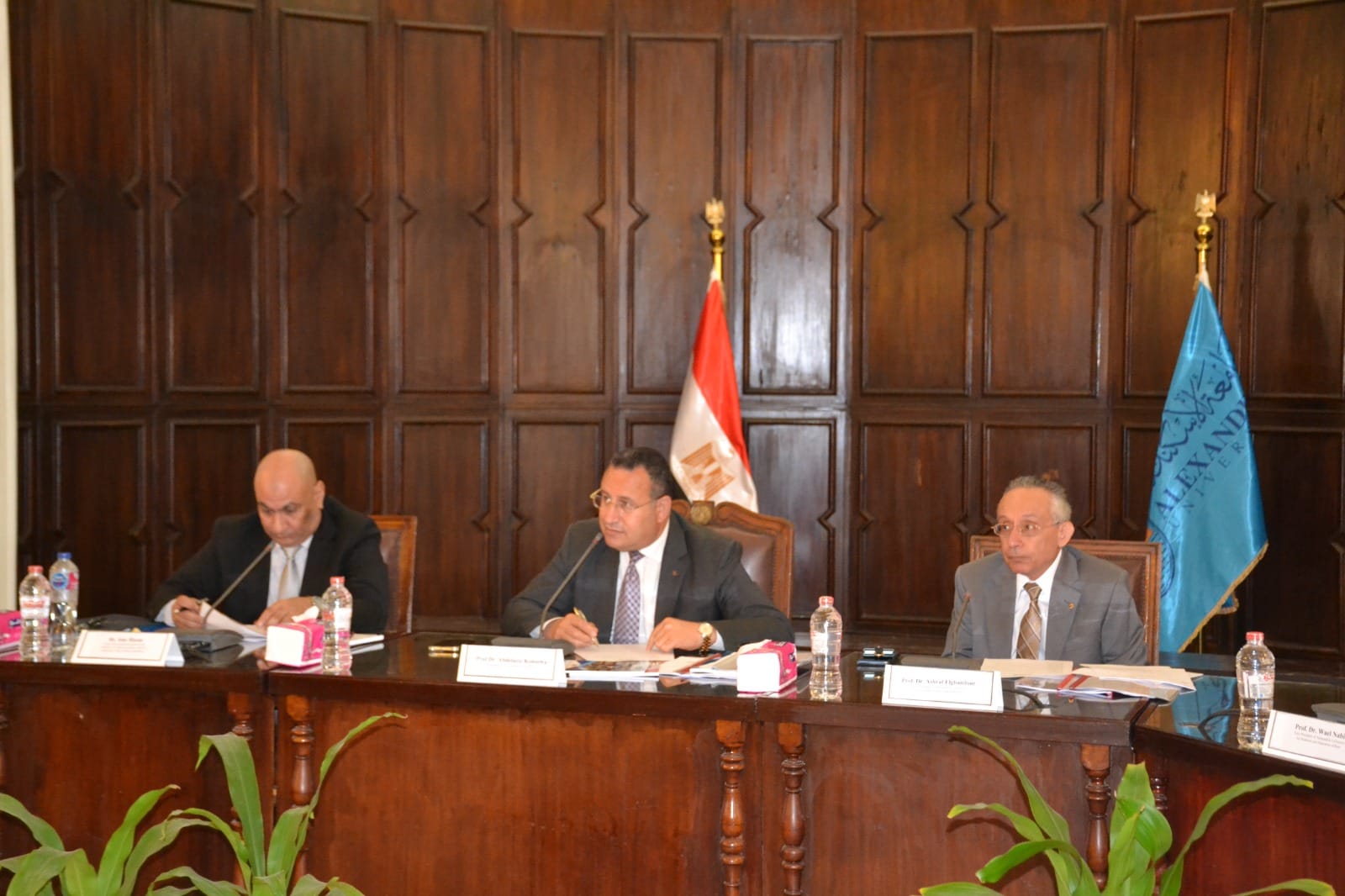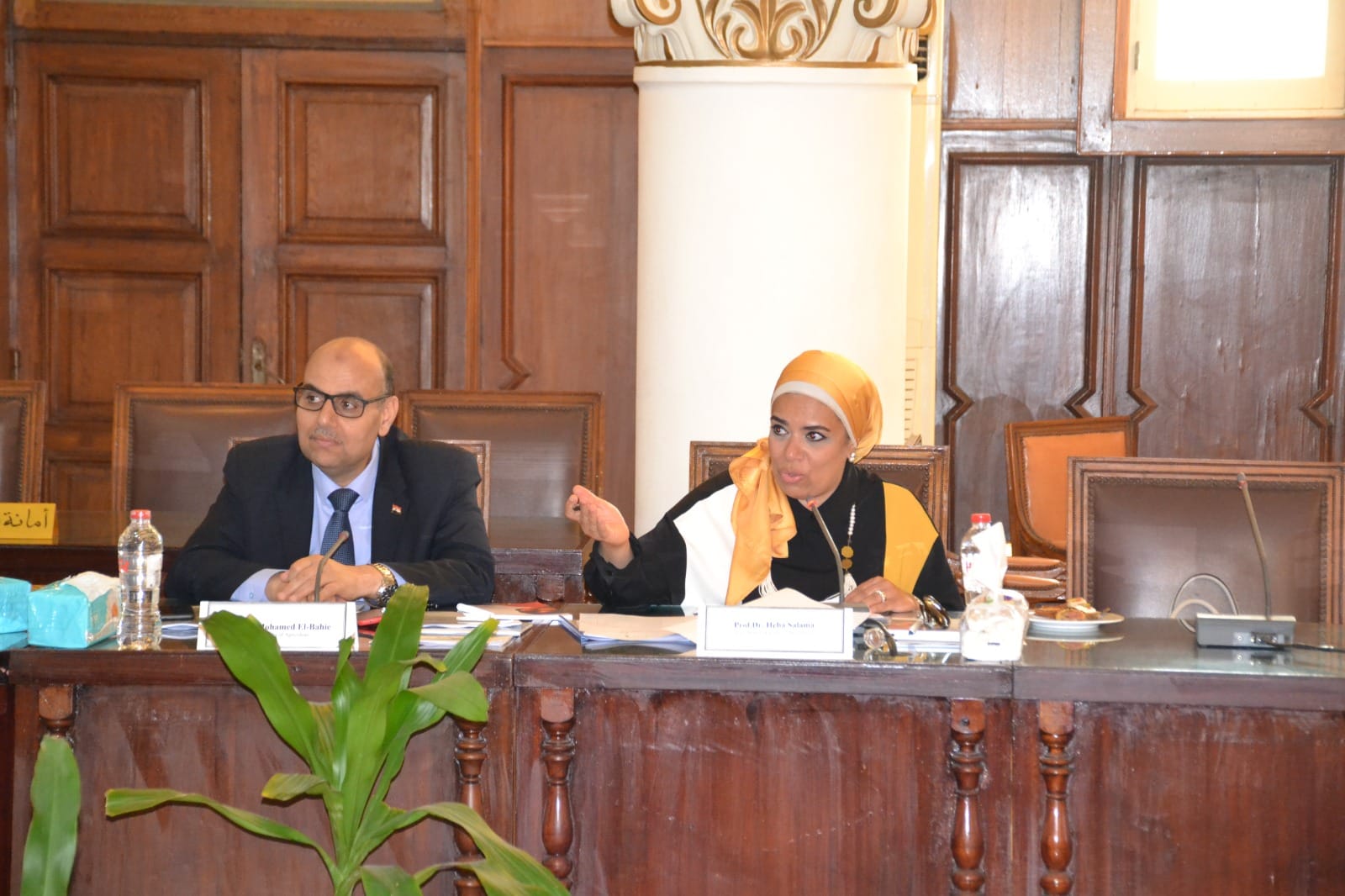
Professor Dr. Abdelaziz Konsowa, President of Alexandria University, witnessed the third meeting of the Steering Committee of the "Tomato Chain Value Project", to demonstrate the practical situation of the project hosted by the Faculty of Agriculture in Shatby. The meeting discussed the existing challenges and the future plan of the educational service centre for the tomato value chain. It was attended by Dr. Amr Hazaa, Head of the Development Projects Unit at the Ministry of Commerce and Industry for Finance and Development Projects, Dr. Ashraf El-Ghandour, Vice President for Graduate Studies and Research, Dr. Wael Nabil, Vice President for Education and Student Affairs, Dr. Mohamed Bahey El Din, Dean of the Faculty of Agriculture, Mr. Martino Milli, Office Manager of the Italian Agency for International Development Cooperation, Mr. Ahmed Rizk, Deputy Regional Director of the United Nations Industrial Development Organization "UNIDO", Dr. Heba Salama, Vice Dean of the Faculty of Agriculture in Shatby for Community Service and Environmental Development, and representatives of the Ministries of Trade and Industry, Agriculture and Land Reclamation.

In his speech, Dr. Konsowa welcomed the guests of the meeting hosted by Alexandria University, after choosing the Faculty of Agriculture at Alexandria University as a venue to host the educational service centre for the value chain of manufactured tomatoes in Egypt. He explained that the business model is being developed at the centre after carrying out repairs and construction equipment to host the production line of the educational service centre for the tomato value chain. Dr. Konsowa stressed that Alexandria University supports all applied research and adopts a knowledge economy that supports the Egyptian economy in light of the new republic, through implementing research outputs, encouraging researchers in various disciplines, and presenting initiatives to fund their research projects that serve the industry and achieve added value to support the Egyptian economy or serve society in general.
While Dr. Amr Hazaa referred to the implementation of the project in Egypt through the United Nations Industrial Development Organization (UNIDO), and through funding by the Italian Agency for International Development Cooperation (AICS). He pointed out that this project came with the aim of supporting and developing the value chain of tomatoes in Egypt, so that it is comprehensive and sustainable by increasing its added value, enhancing the technical capabilities of youth, and providing them with employment and project opportunities. He pointed to the most important achievement of the project, which is bringing in 7 varieties of manufacturing tomatoes from an Italian company through one of its agents in Egypt, where field experiments are currently being conducted on these varieties.
While Dr. Mohamed Bahey El-Din confirmed that the project started 18 months ago, after Alexandria University won the opportunity to implement the project among the 6 parties that applied for it. He added that many meetings and workshops were held within the Faculty of Agriculture and some tomato production centres in Nubaria area with farmers and manufacturers, to introduce them to the project, and the specifications of the tomato fruits required for manufacturing. He referred to the directives of Dr. Abdelaziz Konsowa, President of the University, in this regard to prepare a site dedicated to the project at the Faculty of Agriculture. He added that the Italian side will supply the production line during the next few months, and said that the project aims to train students of the undergraduate and postgraduate levels as one of the outputs of the project, as well as cooperation with agricultural companies producing tomatoes, and training small producers.

Dr. Heba Salama indicated that the project aims to provide training opportunities for workers in the sector of producing and processing tomato products, in addition to discussing the establishment of a factory equipped to produce many tomato products (30 products) as a result of research carried out by the Faculty of Agriculture, Shatby, Alexandria University, where some products will be manufactured for the first time at Alexandria University.

 English
English